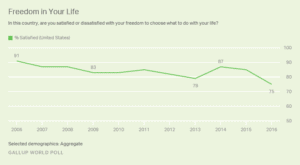Thursday, June 29th, 2017
Stephan: Yet another Monsanto horror show. One can only wonder what it will take to get America's farmers to reconsider chemical mono-culture industrial agriculture, and consider a life-affirming approach that emphasizes the health of the soil, plants, and the farmers and their families.

Soybean leaves showing evidence of damage from dicamba. Thousands of acres of soybean fields have shown this kind of damage this spring.
Credit: the University of Arkansas
Arkansas’s pesticide regulators have stepped into the middle of an epic battle between weeds and chemicals, which has now morphed into a battle between farmers. Hundreds of farmers say their crops have been damaged by a weedkiller that was sprayed on neighboring fields. Today, the Arkansas Plant Board voted to impose an unprecedented ban on that chemical.
“It’s fracturing the agricultural community. You either have to choose to be on the side of using the product, or on the side of being damaged by the product,” says David Hundley, who manages grain production for Ozark Mountain Poultry in Bay, Arkansas.
The tension — which even led to a farmer’s murder — is over a weedkiller called dicamba. The chemical only became a practical option for farmers a few years ago, when Monsanto created soybean and cotton plants that were genetically modified to survive it. Farmers who […]
No Comments
Thursday, June 29th, 2017
Stephan: If you want to see what the future will look like the U.S. is not the place to look. Try China or Switzerland. Here is the city of tomorrow, an urban center that works with nature's meta-systems, instead of dismissing them, or trying to dominate them.

The Liuzhou Forest City will be built to the north of the existing city of Liuzhou
Credit: Stefano Boeri Architetti
The vision of Italian architect Stefano Boeri is starting to take shape around the world, with his so-called vertical forest towers going up in Switzerlandand Milan. Now the Chinese region of Liuzhou will also play home to some of his handiwork, with construction underway on a so-called Forest City that is hoped to soak up some of the country’s infamous air pollution.
The vision of Italian architect Stefano Boeri is starting to take shape around the world, with his so-called vertical forest towers going up in Switzerlandand Milan. Now the Chinese region of Liuzhou will also play home to some of his handiwork, with construction underway on a so-called Forest City that is hoped to soak up some of the country’s infamous air pollution.
Commissioned by the Liuzhou Municipality Urban Planning department, the city will host some 30,000 residents and feature the […]
1 Comment
Thursday, June 29th, 2017
Stephan: While Trump tries to bring back coal, China and other countries are moving out of carbon energy as fast as they can. Here's the latest. Not how many jobs it is estimated will be created in China.
A vast Chinese province of nearly 6 million people has generated all the power it needed for an entire week without using any fossil fuels, according to state-run Chinese media.
Qinghai, a Tibetan plateau province in the country’s northwest, derived all of its power from wind, solar, and hydro-electricity from June 17 to June 23. The experiment was part of a trial run by the government to see if the electricity grid could cope without the kind of constant, reliable energy normally provided by fossil fuels. The Chinese government claims that Qinghai’s week without fossil fuels sets a new global benchmark. In May last year, Portugal (population 10 million) ran its electricity for four consecutive days without fossil fuels.
But Qinghai had some advantages. It’s sparsely populated, compared to other Chinese provinces. As the source of China’s three mighty rivers — the Yellow, Yangtze, and Mekong — it has an unusually large number of hydroelectric facilities. Nearly 80 percent of the energy used during the test week came from hydro. But the plateau is also bathed in sun, making Qinghai a prime site for the expansion of the Chinese solar industry. China completed the world’s biggest solar farm there […]
No Comments
Wednesday, June 28th, 2017
Patrick Wintour, Diplomatic Editor - The Guardian (U.K.)
Stephan: I have been predicting this for months, and now we have the data. Donald Trump and his zombies are not only trashing America internally, they are severely affecting how America is seen by the rest of the world. Increasingly we look like the greedy, bossy, vulgar bully on the block. This is going to take years to reverse.

Donald Trump at the G7 meeting in May with Donald Tusk, Justin Trudeau, Angela Merkel and the Italian prime minister, Paolo Gentiloni. The US president has persistently low ratings across Europe.
Credit: Evan Vucci/AP
More than three-quarters of the world has little or no confidence in Donald Trump’s global leadership and his signature policies, with support for the American presidency collapsing fastest among America’s traditional allies in Europe, according to new polling by the Pew Research Center.
In many countries, support for the US president is now below that of George Bush in 2004, following the Iraq invasion. Globally, two-thirds of respondents describe Trump as “arrogant and dangerous”.
While Donald Trump backs the Saudi-led ultimatum, the state and defense departments are openly critical – a mixed message that could worsen the crisis
The research conducted across 37 countries shows a median of 22% have some or a great deal of confidence […]
No Comments
Wednesday, June 28th, 2017
Jon Clifton, - The Gallup Organization
Stephan: Land of the free; in your dreams. America is no longer even in the top 50%. Note also the figures on corruption. America has lost its way.
 Americans’ feeling of freedom is declining. In 2006, 91% of Americans were satisfied with the freedom in their lives. Today, it’s 75%.
Americans’ feeling of freedom is declining. In 2006, 91% of Americans were satisfied with the freedom in their lives. Today, it’s 75%.
The 16-percentage-point decline is dramatic — but looking at how far the U.S. has fallen in comparison with the rest of the world, the decline is even worse. The U.S. ranked 11th when Gallup asked this question in 2006 (among 118 countries). In 2016, the U.S. came in 71st (among 139 countries). This puts the U.S. in the bottom half of all countries measured. (emphasis added)
This decline isn’t happening in other wealthy democracies. Denmark, Finland and Canada were all tied for first in 2006 — 96% of people in each country expressed satisfaction with their freedom. Today, those figures are virtually unchanged, and all of them remain in the top 11.
Two things typically come to mind when people think about their personal freedom — their financial situation and their government.
On a global basis, GDP per capita and attitudes toward individual income are highly related to how people feel about their freedom. Stated simply, people in wealthy countries are more likely […]
1 Comment





 Americans’ feeling of freedom is declining. In 2006, 91% of Americans were satisfied with the freedom in their lives. Today, it’s 75%.
Americans’ feeling of freedom is declining. In 2006, 91% of Americans were satisfied with the freedom in their lives. Today, it’s 75%.








